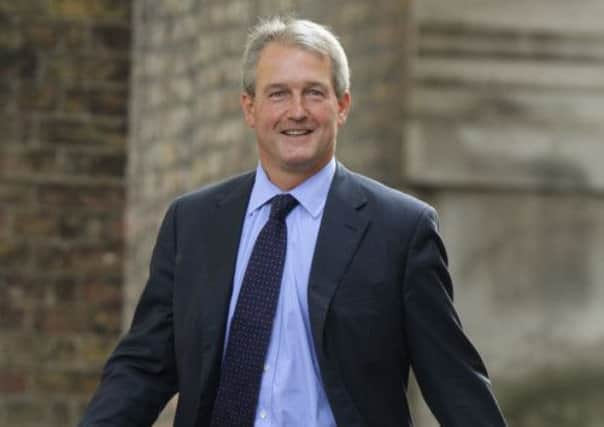Minister calls for local food buying


Environment Secretary Owen Paterson has said public sector organisations should buy local produce, which supports British farmers and can cut food miles without increasing costs,
He made the call during a speech to the Local Government Association’s rural conference yesterday in which he stressed the need to develop the UK food market, at home and abroad.
Advertisement
Hide AdAdvertisement
Hide AdThe idea of schools using more local food has been backed by organisations in Yorkshire not only as a way of supporting the local rural economy but also as a way of educating children about where food comes from.
Jane Sixsmith, the director of Focus on Food Campaign, based in Halifax, said: “We all need to think about buying local produce where it is possible from a price point of view.”
She said schools using locally sourced food in school and getting children to understand the importance of that could help to create momentum as they will take these messages home to their parents. She also called on schools to grow their own food as part of the way they educate children.
“We support calls for schools to use more locally-sourced food but they can also grow their own food for pupils to cook or even to take into the school kitchens so that it is used as part of the meals which everyone eats.”
Advertisement
Hide AdAdvertisement
Hide AdThe Focus on Food Campaign was set up against a background of a national decline in cooking ability and teaching coupled with rising health problems caused by poor diet and lack of food knowledge and skills.
It is based in Halifax where it has a Cooking School which teaches leisure customers, business clients and education and health professionals.
Calls to ensure pupils eat locally sourced food and understand where it comes from have also been welcomed by Eureka the National Children’s Museum in Halifax which is set to launch a new gallery on this issue.
The museum opened its new All About Me Gallery earlier this year which has already attracted 70,000 visitors in its first three months.
Advertisement
Hide AdAdvertisement
Hide AdIt is full of exhibits which aim to get young people to learn about their bodies and the importance of living healthily, through play.
Earlier this summer the Yorkshire Post revealed they are now expanding it with a new section which aims to educate children about food and where it comes from.
Projects director Tudor Gywnn said it was important that pupils understand where and how food was sourced.
He said that this message would not only be contained in the new gallery but also in the museum’s cafe where the food was both healthy and locally sourced.
Advertisement
Hide AdAdvertisement
Hide AdDuring his speech, Mr Paterson said: “As well as promoting exports, we need to make a significant dent in the 22 per cent of food that’s imported but could be produced here.”
The Government, farmers and industry are looking at how to make it easier for businesses to grow in the UK market, he said.
“Businesses alone won’t make a big enough impact, we in Government need to play our part. The Government has set public procurement standards for food through the Government Buying Standard. I believe that local government has a huge part to play in supporting, and benefitting from, this agenda.”
The rural economy is worth £211bn a year, and supports a third of businesses, despite being home to just one fifth of the population, according to figures from the Department for Environment, Food and Rural Affairs (Defra). Food and farming is the UK’s biggest manufacturing sector but in 2011, the UK imported nearly £37.6bn worth of food, compared to exports worth £18.2bn.
Mr Paterson’s speech also highlighted the Cornwall food programme which supplies the Royal Cornwall Hospital, St Michael’s Hospital and the West Cornwall Hospital.